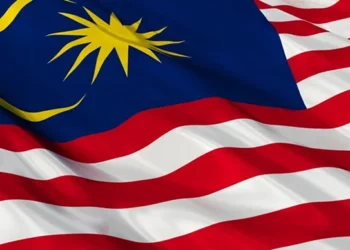For yet another year, Nigerian universities have failed to secure a spot among the world’s top 1,000 institutions, according to the latest QS World University Rankings released on June 19, 2025.
The 2026 rankings reveal that none of Nigeria’s 297 universities made the cut, marking the third straight year the country has been absent from the elite list. Only three Nigerian institutions were ranked at all: the University of Ibadan (UI), the University of Lagos (UNILAG), and Ahmadu Bello University (ABU). UI and UNILAG held their positions in the 1,001 to 1,200 range, while ABU made its debut in the 1,201 to 1,400 bracket.
The rankings evaluate universities on eight key factors, including academic reputation, research impact, international partnerships, and graduate employment. Nigerian schools lagged behind in critical areas such as research output, global collaboration, and job prospects for graduates.
Meanwhile, other African nations fared better. Egypt dominated with 20 ranked universities, followed by South Africa with 11. Tunisia placed four, while Ghana and Morocco each had two. Kenya, Libya, Sudan, Uganda, and Ethiopia each had one institution represented.
South Africa remains Africa’s leader in global rankings, with the University of Cape Town at 150th and the University of the Witwatersrand at 291st. No Nigerian university came close to the top 300.
Globally, the 2026 rankings featured 1,501 universities from 106 countries. The top spots were claimed by institutions in the United States, United Kingdom, Switzerland, and Singapore, with MIT retaining first place. Imperial College London, Stanford, and Oxford followed closely.
Despite Nigeria’s large number of universities—nearly 300—none have met QS’s high standards in recent years. UI and UNILAG have consistently missed the top 1,000, while ABU only just entered the rankings this year.
The persistent exclusion highlights deep-rooted issues in Nigeria’s higher education system, including poor funding, weak research culture, and limited global engagement. The same three Nigerian universities – UI, UNILAG, and ABU – were the only ones ranked. UI and UNILAG stayed in the 1,001 to 1,200 group, while ABU appeared for the first time in the 1,201 to 1,400 category.
QS assesses universities based on academic reputation, employer feedback, faculty-to-student ratios, research citations, international diversity, and sustainability. Nigerian institutions continue to underperform in research influence, global ties, and graduate success, which are key factors in the rankings.
Across Africa, Egypt led with 20 entries, South Africa followed with 11, and Tunisia had four. Ghana and Morocco secured two spots each, while Kenya, Libya, Sudan, Uganda, and Ethiopia had one apiece. South Africa remains unmatched, with two universities in the top 300 globally.
The trend underscores Nigeria’s struggle to compete internationally, raising concerns about the quality and global standing of its higher education system.




































